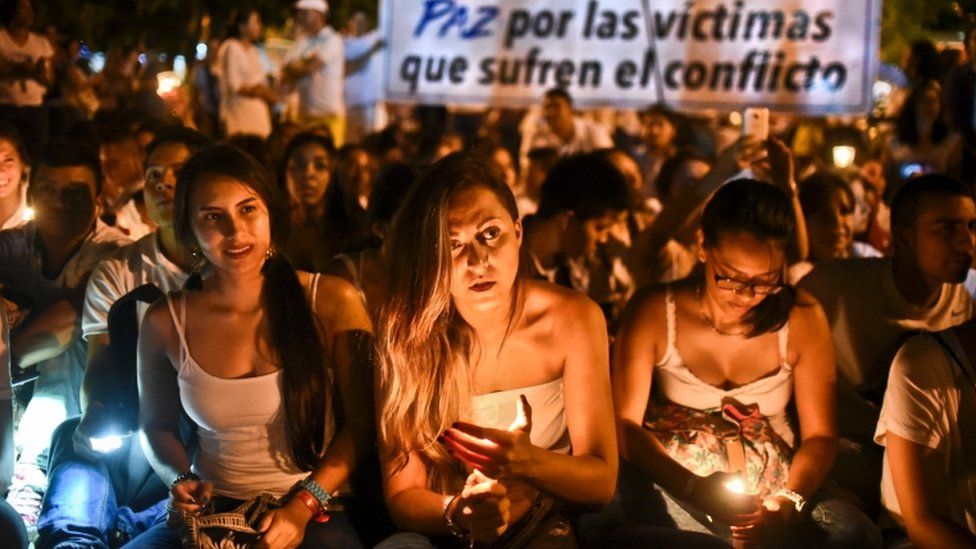Colombia peace boost as Uribe opens door to Farc talks
- Published

Colombia's ex-president Alvaro Uribe, who led the successful campaign to reject a peace accord with Farc rebels, says he may now be open to talks.
Mr Uribe, leader of the right-wing Democratic Center party, had previously ruled out such talks.
But after a referendum rejected the peace accord between the rebels and the government, he said his group might now take part in the "national interest".
The deal was four years in the making and its rejection was a shock.
It failed to pass by a narrow margin in the popular vote on 2 October.
Opponents of the accord to end 52 years of conflict thought it was too lenient on the Farc (Revolutionary Armed Forces of Colombia).
They were angered that Farc guerrillas were offered congressional seats and non-custodial sentences such as clearing landmines in return for ending the conflict.
Mr Uribe said on Tuesday: "We think that at this time, in the interest of a national deal, spokespeople from 'No' could at some point speak with the Farc."
President Juan Manuel Santos, who spearheaded the accord and won the Nobel Peace Prize this month for his efforts, has been talking with the opposition to try to salvage it.
He said he would take opposition proposals into discussions with the Farc later in the week.
Mr Santos last week extended a ceasefire with Farc rebels until the end of the year to give more time to save the deal.
The UN Security Council agreed on Tuesday that its mission for Colombia could continue to monitor the truce.
Russian Ambassador Vitaly Churkin said the council had received a request "from all parties" to do so and that council members "encourage the parties and all political actors to continue momentum in the peace effort".
An estimated 220,000 people have been killed during the Colombian conflict.
- Published24 November 2016
- Published6 October 2016
- Published6 October 2016